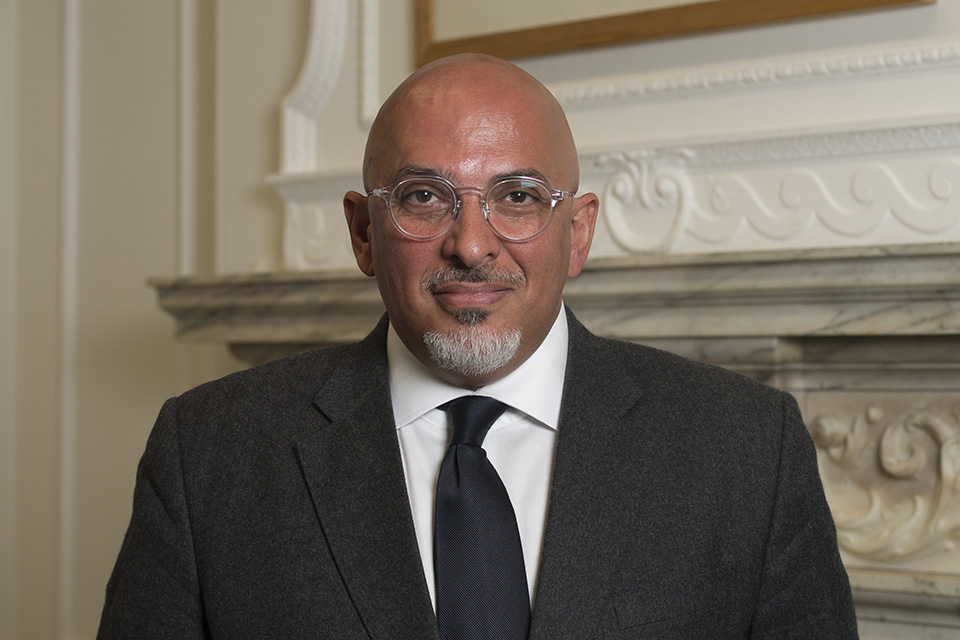Schools White Paper: Build on a great early years education and look ahead to the skills, careers and lives young people want after they leave education

We all want bright futures for our children and success for our schools. When I talk to parents and carers they tell me how critical education is to happy and fulfilled lives.
This won’t come as a surprise to anyone, and our children tell us the same: that they are excited to be back at school and realise the fundamental importance of a top quality education.
They want to have good jobs and happy families, and they want to contribute to their communities.
Wanting this is easy. Delivering it is challenging.
I know myself what it is like to feel that a bright future is a long way away. I have been the child at the back of the classroom, terrified that my English teacher will ask me a question.
I have been the ‘disruptive influence’ who needed help to learn how to manage my energy.
It was the support of excellent teachers in a great school which helped me move forward. I want every child in England to have that opportunity. I am part of a government which has made it its mission to level up opportunity across the United Kingdom, ensuring no person is disadvantaged on account of where they live, and to deliver a manifesto commitment to take action in areas where schools suffer from entrenched underperformance.
In England, we can be proud of what we have achieved together in recent decades.
Working with parents and teachers, we have transformed the way our schools work and our children are taught. More children secure the foundations of literacy and numeracy that are so critical for their wider learning and life chances, as the key facts on the next pages show. More children than ever are taught in schools judged to be “good” or better, with 86% of schools judged to be this compared to 68% in 2010.2
We have achieved this by backing our teachers and leaders, giving them the training and development to deliver for the communities they serve. We have revolutionised how reading is taught and the curriculum our children experience is richer, deeper and wider in knowledge than ever. We have returned rigour to our exams and the qualifications children achieve set them on a path for success. We have fostered innovation through academy trusts and free schools. All of this has been informed by the best research and evidence available, supported by the world-class Education Endowment Foundation. At the heart of this success has been collaboration – amongst professionals, organisations and local leaders – working together to deliver for children and young people.
Now we must do more to ensure every child can access cornerstone literacy and numeracy skills, wherever they live and learn. We must do more to ensure that children with special educational needs and disabilities (SEND) and children with a social worker have the same opportunities to thrive as their peers. We must continue to address the educational and emotional impact of the pandemic, particularly for more disadvantaged and vulnerable children.
My vision for this white paper and the SEND Review alongside it is simple: to introduce and implement standards that will improve children’s education, deliver the right support if they fall behind and give them the tools to lead a happy, fulfilled and successful life.
I want every child to get a great education and the right support, in the right place, and at the right time. That means that we need to go from roughly seven in ten children achieving the expected standard in reading, writing and maths by the end of primary school to nine in ten children by 2030, and improve the national GCSE average grade in both English language and in maths.
This white paper sets out how we will achieve that. We will build on the strengths of great teachers, leaders and other professionals, and cement the improvements that we have already made.
But we are not shying away from reform, or from making difficult decisions. The problem we are trying to solve is simply too important not to do so. We have to find ways to tackle what is not working as well as it could.
Government does not have all the answers, and nor should it. A flourishing school system can only be achieved by schools working in partnership with each other, so that the achievements of the very best schools can reach every corner of the country.
It will only be made a reality by building on a great early years education and looking ahead to the skills, careers and lives young people want after they leave education.
It will need parents, teachers, community leaders, social workers, local authorities, professionals and children themselves to come together as one to make it succeed.
This white paper will help us make this vision a reality.
The Rt Hon Nadhim Zahawi, Secretary of State for Education
How DfE are raising standards in schools and colleges – What does the Schools White Paper means for you?
DfE (@EducationGovUK) have launched an ambitious plan to give every child the support they need in education. From targeted support in English and maths to ensuring every child has an excellent teacher.
The plan is set out in the Schools White Paper* – also known as an Opportunity for all: Strong schools with great teachers for your child:
Our plans are ambitious, wide ranging and affect every stage of school-age education – here we set out what the key proposals will mean for you.
Higher standards in curriculum, behaviour and attendance will help every child to reach their potential
Education is the great leveller. Every single child should have access to an education that equips them with the knowledge, skills and experiences needed to fulfil their potential.
Primary education is critical to a child’s development and it is where they lay the foundations for their futures.
So, our mission for education is that by 2030, 90% of children will leave primary school having achieved the expected standard in reading, writing and maths, up from 65% in 2019.
That means more pupils will be equipped to flourish in secondary school where we are also raising our expectations. We have also set an ambition to increase the national GCSE average grade in both English language and in maths from 4.5 in 2019 to 5 by 2030.
How will we achieve this?
The school day
It’s unfair that a child who receives 20 minutes per day less teaching time loses out on around two weeks of education and time with their peers and teachers a year.
That’s why we plan to introduce a minimum expectation for the length of the school week of 32.5 hours (the current average) for all mainstream state-funded schools.
Most schools won’t have to change their opening hours because they already have a week at least this long – but those that don’t, will.
This move will help support all children from primary school onwards to have fair access to a high-quality education. We will also encourage schools to explore going further than the minimum expectation if possible to support a broad curriculum and enable access to high-quality extra-curricular provision.
Improving behaviour
For children to receive the best possible education, they must be taught in a calm, orderly, safe and supportive school.
That is why we are supporting teachers in all state-funded schools to develop their expertise in managing pupil behaviour and wellbeing through a fully funded National Professional Qualification in Behaviour and Culture.
We are also continuing to help heads use the full range of powers available to them – like suspensions and exclusions – appropriately where they have to, so they are more confident to take action where necessary.
Boosting attendance
Now, more than ever, face-to-face education is of paramount importance for children’s academic, social and emotional wellbeing.
We’ve been carrying out a consultation – which means we’ve been speaking to parents, teachers, and others – about how we can help pupils overcome whatever is stopping them from going to school regularly.
Subject to the results of this consultation, we will introduce new legislation to create new statutory guidance on attendance, including a requirement for every school to publish a clear attendance policy to improve support. By setting clear expectations for staff, pupils, and parents they will know what processes should be followed in cases of absence and what support should be offered. For parents this should result in greater consistency and improved, earlier support where required.
We will also make it easier for schools to understand individual attendance patterns and for trusts, local authorities and DfE to identify problems more quickly.
Every child who falls behind in English or maths will get the right support to get back on track
We are pledging to parents that every child who falls behind in English or maths will get targeted, evidence-based support to get back on track.
The high quality teaching of an ambitious curriculum is essential for every child to succeed, but some pupils will need additional support to help them to progress when they are falling behind.
Many schools already do this but we expect every school to provide the right support for any child that is struggling in English or maths. This includes assessing and monitoring pupils’ progress in English and maths and drawing on high quality evidence-based interventions to help them to catch up when they are behind. Schools will tell parents about their child’s progress and how they can also support their child’s learning at home.
We expect tutoring will be a key way schools will deliver targeted support and we have invested £1 billion to establish the National Tutoring Programme, financially incentivising schools to provide tutoring so that tutoring is embedded in every school. We will deliver up to 6 million tutoring courses by 2024, which when combined with our programmes to deliver tutoring for young people aged 16-19 equates to around 100 million hours of tutoring. Over one million courses of tutoring have started through the National Tutoring Programme, with the programme on track to deliver the ambitious target of two million courses this academic year.
Reforming the SEND and children’s social care systems
Over 15% of children have an identified special educational need or disability (SEND) and vulnerable children and children with SEND have lower educational attainment than their peers on average.
That’s why we are reforming the SEND and Children’s Social Care Systems, so that no child misses out. This will mean all children and young people with SEND are able to access the right support in the right place at the right time.
To make sure the right support is in the right places, we will invest £2.6bn in high needs capital investment, providing 34,000 additional specialist or alternative provision places. As part of that we will deliver new special and alternative provision free schools.
We will set out more in detail shortly in our SEND Review. We will also be considering the recommendations of the Independent Review of Children’s Social Care, due this spring, as part of our commitment to make a real difference to the needs, experience and outcomes of those supported by children’s social care.
We will support schools in delivering all this by ensuring an excellent teacher for every child
We cannot achieve our vision for schools without excellent teachers. That is why we will give every teacher access to world-class training and professional development at every stage of their career.
We will deliver 500,000 teacher training and development opportunities across Initial Teaching Training, the Early Career Framework and National Professional Qualifications by 2024, giving them the expertise and support needed to deliver great teaching.
Schools will be able to have a trained literacy expert through a new National Professional Qualification for Leading Literacy. And we will make sure every child starts schools with a firm foundation of literacy and numeracy through a new National Professional Qualification for Early Years Leaders, and up to £180m investment in the early years’ workforce, including literacy and numeracy training for early years practitioners.
We will make sure every school can access funded training for a senior mental health lead to deliver a whole school approach to health and wellbeing.
To ensure we are attracting and retaining the best teachers, teacher starting salaries are set to rise to £30,000, and we will provide further incentives to those who work in schools with the most need. We have also proposed that experienced teachers and leaders receive their highest pay rise in over 15 years.
* ‘White papers’ are formal plans from Government that set out proposals for future legislation before being decided upon by parliament.











Responses